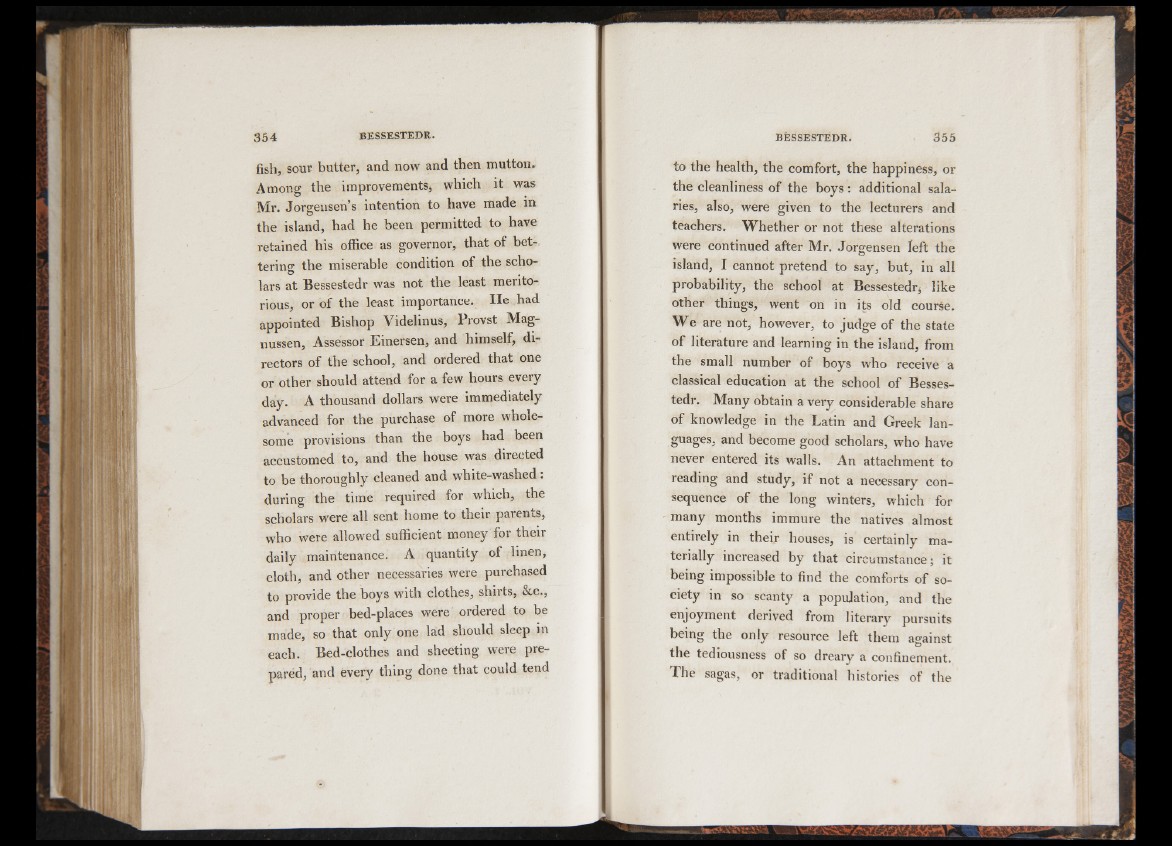
fish, so u p butter, and now and then mutton.
Among the improvements, which it was
Mr. Jorgensen’s intention to have made in
the island, had he been permitted to have
retained his office as governor, that of bettering
the miserable condition of the scholars
at Bessestedr was not the least meritorious,
or of the least importance. He had
appointed Bishop Videlinus, Provst Mag-
nussen, Assessor Einersen, and himself, directors
of the school, and ordered that one
or other should attend for a few hours every
day. A thousand dollars were immediately
advanced for the purchase of more wholesome
provisions than the boys had been
accustomed to, and the house was directed
to be thoroughly cleaned and white-washed:
during the time required for which, the
scholars were all sent home to their parents,
who were allowed sufficient money for their
daily maintenance. A quantity of linen,
cloth, and other necessaries were purchased
to provide the boys with clothes, shirts, &c.,
and proper bed-places were ordered to be
made, so that only one lad should sleep in
each. Bed-clothes and sheeting were prepared,
and every thing done that could tend
to the health, the comfort, the happiness, or
the cleanliness of the boys: additional salaries,
also, were given to the lecturers and
teachers. Whether or not these alterations
were continued after Mr. Jorgensen left the
island, I cannot pretend to say, but, in all
probability, the school at Bessestedrj like
other things, went on in its old course.
We are not, however, to judge of the state
of literature and learning in the island, from
the small number of boys who receive a
classical education at the school of Bessestedr.
Many obtain a very considerable share
of knowledge in the Latin and Greek languages,
and become good scholars, who have
never entered its walls. An attachment to
reading and study, if not a necessary consequence
of the long winters, which for
many months immure the natives almost
entirely in their houses, is certainly materially
increased by that circumstance; it
being impossible to find the comforts of society
in so scanty a population, and the
enjoyment derived from literary pursuits
being the only resource left them against
the tediousness of so dreary a confinement.
The sagas, or traditional histories of the